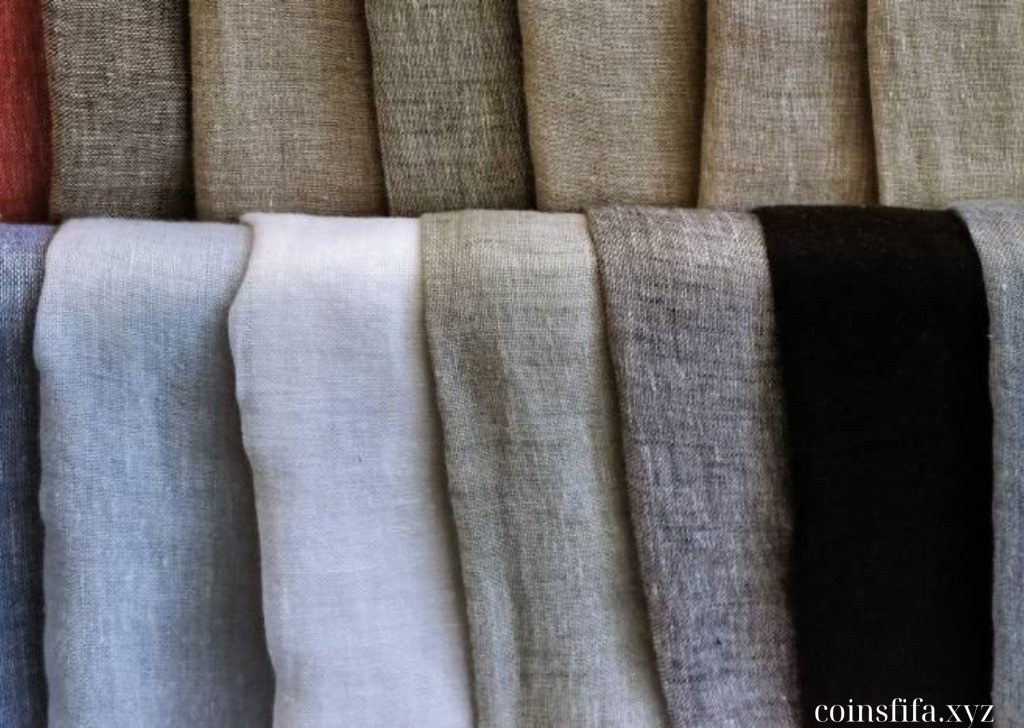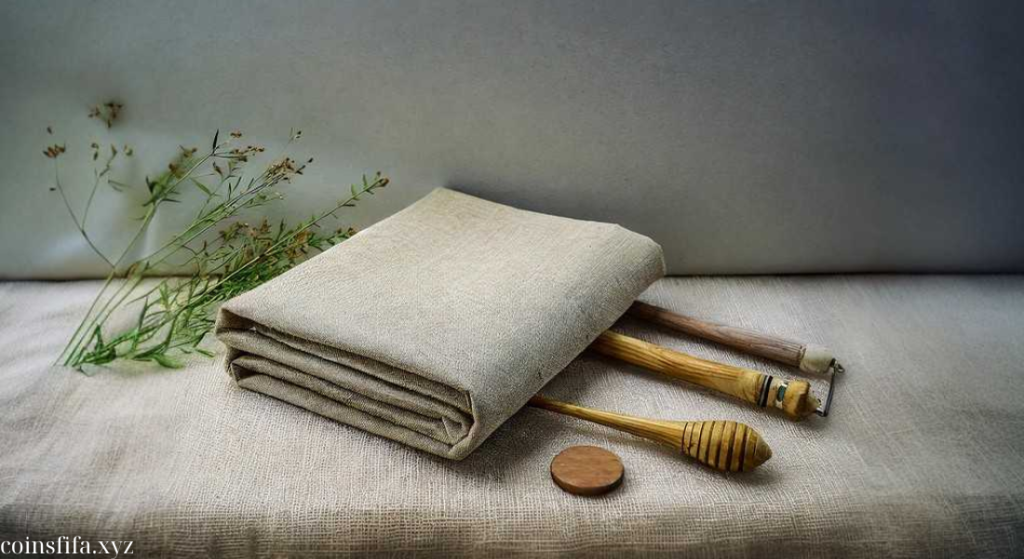Linen has become synonymous with comfort, style, and lightweight luxury. Known for its natural texture and breathability, linen fabric types have redefined casual fashion and home decor, offering an effortlessly chic look that suits any occasion. In this guide, we’ll explore the different types of linen fabrics, their key characteristics, and how to incorporate them into your wardrobe and living space for a refined yet relaxed style.
Table of Contents
ToggleKey Highlights
- Introduction to Linen Fabrics: Why linen is a staple in casual style.
- Types of Linen Fabric: Exploring various linen types for fashion and decor.
- Key Features: Unique qualities of each linen type.
- How to Choose the Right Linen: Tips for selecting the perfect linen fabric.
- Care Tips: Maintaining the beauty and longevity of linen fabrics.
1. Introduction to Linen Fabrics: A Natural Choice for Effortless Elegance
Linen is a natural fabric made from flax fibers, known for its durability, breathability, and timeless appeal. It’s a preferred choice for those who appreciate lightweight luxury and a casual yet sophisticated style. From clothing to home decor, linen fabrics offer a versatile and eco-friendly option that remains popular year-round.
Why Choose Linen?
- Breathable and Cool: Ideal for warm weather, linen is highly breathable, keeping you cool and comfortable.
- Durable: Stronger than cotton, linen becomes softer and more comfortable with each wash.
- Eco-Friendly: Linen is a sustainable fabric, requiring less water and fewer pesticides to cultivate.
2. Types of Linen Fabric: A Closer Look at Stylish Varieties
There are various types of linen fabrics, each with distinct characteristics that make them suitable for different applications. Here’s a closer look at some of the most popular and versatile types of linen:
Plain Woven Linen
The most common and versatile type, Plain Woven Linen is lightweight and breathable, making it ideal for summer clothing and casual wear. It’s also a popular choice for home textiles like tablecloths and curtains.
- Texture: Smooth with a subtle natural texture.
- Ideal Uses: Summer shirts, dresses, table linens, and window treatments.
- Key Features: Lightweight, breathable, and easy to maintain.
Linen Sheeting
Linen Sheeting is a heavier, sturdier linen fabric, often used for bedding and home decor. It’s known for its durability and soft texture, making it perfect for luxury bed linens and upholstery.
- Texture: Soft, sturdy, and slightly heavier.
- Ideal Uses: Bed sheets, duvet covers, curtains, and upholstery.
- Key Features: Durable, softens with use, and has a natural look.
Damask Linen
Damask Linen features intricate patterns woven into the fabric, giving it a refined and elegant appearance. This type of linen is often used for formal table settings and decorative pieces.
- Texture: Smooth with raised, decorative patterns.
- Ideal Uses: Tablecloths, napkins, and decorative pillows.
- Key Features: Elegant, refined, and suitable for formal occasions.
Linen Canvas
Thicker and more durable, Linen Canvas is a heavyweight linen fabric that’s great for structured garments and accessories. It’s also widely used in art and interior design for its strength and texture.
- Texture: Thick, textured, and durable.
- Ideal Uses: Jackets, bags, wall hangings, and art canvases.
- Key Features: Sturdy, textured, and perfect for heavy-duty projects.
Handkerchief Linen
Handkerchief Linen is a lightweight and delicate fabric with a smooth texture. It’s ideal for summer clothing, light scarves, and delicate home decor items that require a soft and airy fabric.
- Texture: Light, smooth, and semi-sheer.
- Ideal Uses: Summer blouses, handkerchiefs, light curtains, and scarves.
- Key Features: Lightweight, airy, and semi-sheer.
Toweling Linen
As the name suggests, Toweling Linen is designed for absorbency and durability. It’s a heavier, textured linen used for bath towels, kitchen towels, and other household textiles that need to absorb moisture effectively.
- Texture: Textured, absorbent, and sturdy.
- Ideal Uses: Towels, kitchen linens, and aprons.
- Key Features: Highly absorbent, durable, and dries quickly.
3. Key Features: What Makes Each Linen Type Unique
Each type of linen fabric has distinct qualities that make it ideal for different applications. Here are the key characteristics to consider when selecting linen:
- Weight: Lightweight linens like Handkerchief Linen are perfect for summer wear, while heavier options like Linen Sheeting are great for home decor.
- Texture: Choose a smooth texture for clothing and a more textured finish for upholstery and accessories.
- Pattern: Consider Damask Linen for an elegant, patterned look or Plain Woven Linen for a simple and versatile style.
- Durability: For heavy-duty use, opt for Linen Canvas or Toweling Linen, which offer greater strength and absorbency.
4. How to Choose the Right Linen: Matching Fabric to Your Project
Selecting the perfect linen fabric depends on the specific needs of your project. Here are some tips to help you make the right choice:
Consider the Garment or Item’s Purpose
For breathable summer clothing, choose lightweight options like Plain Woven Linen or Handkerchief Linen. For durable home textiles, Linen Sheeting or Toweling Linen are excellent choices.
Think About the Look and Feel
Linen’s natural texture adds a rustic and chic appeal to any project. For a refined and formal look, consider Damask Linen. For a casual and laid-back style, opt for Plain Woven or Handkerchief Linen.
Match the Fabric to the Season
Linen is ideal for warm weather due to its breathability, but heavier linens like Linen Canvas can be used year-round for home decor projects and structured clothing.
5. Care Tips: Maintaining the Beauty of Linen Fabrics
Linen is a durable fabric that becomes softer over time, but it requires specific care to maintain its beauty. Here are some tips to keep your linen fabrics in excellent condition:
Wash with Care
Machine wash linen on a gentle cycle with cold water. Use a mild detergent to preserve the fibers, and avoid bleach, which can weaken the fabric.
Dry Properly
Air drying is recommended for linen, as high heat can cause shrinkage. If using a dryer, select a low heat setting and remove the fabric while it’s still slightly damp to minimize wrinkles.
Iron for a Crisp Finish
Iron linen while it’s damp to achieve a crisp and polished look. Use a high heat setting with steam to remove wrinkles, or embrace the natural, slightly wrinkled texture for a casual aesthetic.
Conclusion
Choosing the right linen fabric type can elevate any design project, from casual clothing to stylish home decor. Each type of linen offers unique qualities that suit different styles and applications, making it a versatile and timeless fabric choice. Whether you’re looking for the lightweight comfort of Handkerchief Linen, the durability of Linen Canvas, or the refined elegance of Damask Linen, there’s a linen fabric perfect for your needs. With proper care, linen becomes even more beautiful over time, making it a luxurious yet practical choice for any season.
FAQ
What are the best types of linen for summer clothing?
Plain Woven Linen and Handkerchief Linen are ideal for summer wear due to their lightweight and breathable nature.
How do I care for my linen fabrics?
Wash linen in cold water with a gentle detergent, air dry or use low heat, and iron while damp for a crisp finish.
Can I use linen for home decor projects?
Yes, heavier linens like Linen Sheeting and Linen Canvas are excellent for home decor, including curtains, upholstery, and bedding.
What is the most absorbent type of linen?
Toweling Linen is designed for high absorbency, making it perfect for towels, kitchen linens, and aprons.
Which linen is best for formal settings?
Damask Linen offers a refined and elegant appearance, making it ideal for formal table settings and decorative pieces.

